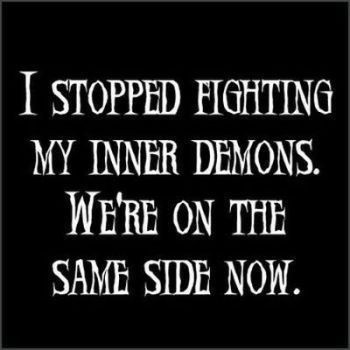Last updated on January 28th, 2022 at 10:51 pm
 Before taking a chance on my dream, I worked in corporate America where there is no such thing as a 40-hour workweek.
Before taking a chance on my dream, I worked in corporate America where there is no such thing as a 40-hour workweek.
In corporate America, if you’re lucky, you’re able to keep your work hours at fifty-five to sixty a week. At first, it feels like you’ve made a grand commitment toward something greater than yourself–something fortuitous and maybe even wonderful–an exciting job with amazing benefits.
You can finally breathe.
Until three years later when you find yourself mentally swearing at whoever purchased the last Mounds candy bar in the vending machine three floors below your oddly decorated blue cubicle you were taking a quick dinner break from.
Yes, people decorate cubicles.
You’re tired of the frenzied pace, searching desperately for ways to hide so you can be left alone so you can leave. You’ve perfected the art of mysteriously disappearing ten minutes early because it can mean thirty extra minutes of your own precious life outside of work if the commute is timed right.
You may fight to the death for a cubicle by a window, even if the coveted spot requires balancing on your chair to see a patch of sky or the building next door.
Your cubicle may even reside in a section of the building located near the men’s bathroom, or the kitchen. I guess it could be great if you work around men worth seeing walk to the bathroom, or the kitchen with amazing food brought to you to sample. Yet you still don’t look up from your work long enough to enjoy the moment.
What does my corporate burnout have to do with dream burnout? It’s all burnout. Don’t trade one prison for another.
When you are feeling work burnout you can convince yourself it will get better and you’ll snap out of it and reengage in the crazy, nut-job pace. But you don’t quit. Because you get paid. You have benefits. You have responsibilities. With dream burnout; you just stop. POOF. You’re done.
Common burnout signs are —
Thinking every day is a bad day.
Caring about your work over your time at home.
Feeling exhausted all the time.
The majority of your day is spent on tasks you find mind-numbingly dull or overwhelming.
You feel like nothing you do makes a difference or is appreciated.
I think that reads like life as a mom of a teenager.
Author Melinda Smith, M.A says that
Burnout is a state of emotional, mental, and physical exhaustion caused by excessive and prolonged stress. It occurs when you feel overwhelmed and unable to meet constant demands. As the stress continues, you begin to lose the interest or motivation that led you to take on a certain role in the first place.
Burnout reduces your productivity and saps your energy, leaving you feeling increasingly helpless, hopeless, cynical, and resentful. Eventually, you may feel like you have nothing more to give.
We can and do burn out our dreams too. We scatter the unfocused goals we’ve about our dream space, wildly choosing one over another without a solid plan. We feel like we are working at our dream when we are mostly stressing about our dream. We don’t schedule our dream time and modulate our pace.
Working on a dream may be a marathon in reality as far as the time it may take to cross your personal finish line, but you should cover your miles in short sprints with breaks for rest, but never completely leaving the race.
At the start of your dream journey, you think “if I do A right now, it will lead to B, then I can do C next Monday, and then D money or attention will flow as my dream catapults to the stars!” Then you lock yourself into your dream version of the corporate blue felt cubicle. And nothing happens. For quite a while.
Dreams can be like chasing a cat that wants to say outside. In the wind.
Dreams believe in a life of their own and execute themselves in the order of, I’ve done D, now here’s P, and I need to look at A again and I’m stuck here because the next step is hard. . . and frankly, I’m bored. Nothing is working how I imagined.”
Your idea feels ridiculous. You believe it’s the most stupid idea you’ve ever thought of since the time you went out with Sally’s brother who liked to eat with his mouth open and pass gas when he thought no one noticed–except strangers noticed and thought it was you.
Why prolong the suffering?
Because you haven’t paced yourself and allowed space for fun. You haven’t designated duties to you those who cohabit your space to distribute the true workload more equitably. There will be times that you want to give up, take your toys from the sandbox march home to your bedroom, and quit. It’s simply a sign you need space from your dream and a new perspective.
And don’t hang out with people who don’t believe in your ability to do this thing you feel you must do.
Best-selling author and top business motivational speaker Harvey Mackey says
Life is not a parabolic curve. It doesn’t go straight up. There’s lots of lumps and a lot of bumps, a lot of throttling up and a lot of throttling down. Yet, I’ve never met a successful person that hasn’t had to overcome a lot of adversity in their lives.
And I believe dreams are life. Life doesn’t magically disappear when you decide to try to change your life. Become someone new and be a marathon dream sprinter. Work hard for a bit, then take a break.
Breathe air outside. See a friend. Take a nap. Read a book. Pet the cat. Bark at your dog. Film it. Try a new recipe–for breakfast. Have sex someplace new. Go dancing. Take a walk. Just don’t get out of the race.
Even painter Leonardo Da Vinci advised
It is a very good plan every now and then to go away and have a little relaxation. When you come back to the work your judgment will be surer, since to remain constantly at work will cause you to lose the power of judgment.
I say –
It is a very good plan every now and then to go away and have a little relaxation. When you come back to the dream your judgment will be surer, since to remain consistently thinking and working your dream will cause you to lose the magic dream power.

Catherine Hughes is an accomplished magazine columnist, content creator, and published writer with a background as an award-winning mom blogger. She partners with companies to create captivating web content and social media stories and writes compelling human interest pieces for both small and large print publications. Her writing, which celebrates the resilience and achievements of Northern California’s residents, is featured in several magazines. Beyond her professional life, Catherine is passionate about motherhood, her son, close friendships, rugby, and her love for animals.
Note: Articles by Catherine may contain affiliate links and may be compensated if you make a purchase after clicking on an affiliate link.



